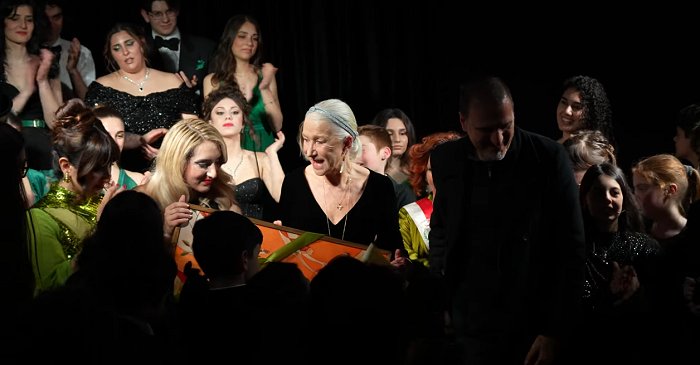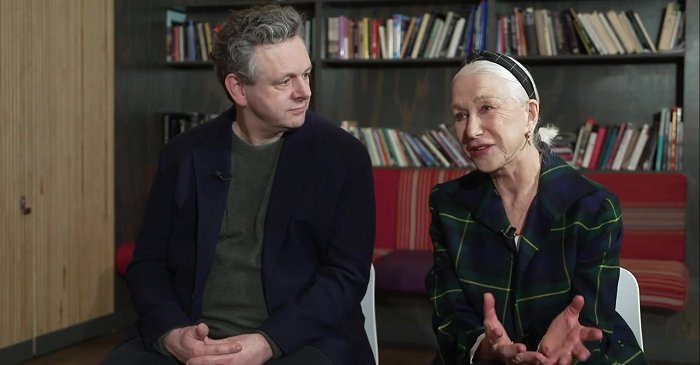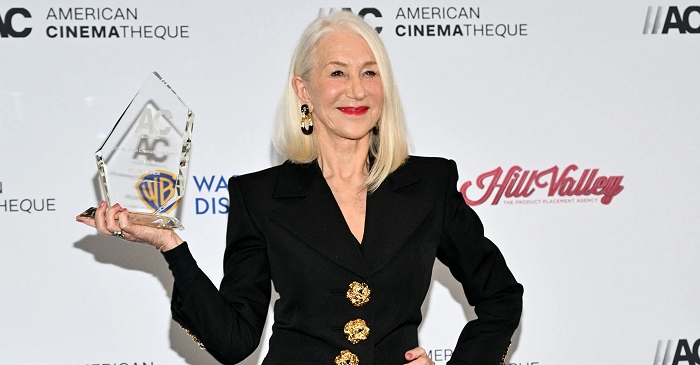
|
Welcome to The Helen Mirren Archives, your premiere web resource on the British actress. Best known for her performances with the Royal Shakespeare Company, "Prime
Suspect" and her Oscar-winning role in "The Queen", Helen Mirren is one of the world's most eminent actors today. This unofficial fansite provides you with all latest
news, photos and videos on her past and present projects. Enjoy your stay.
|
Celebrating
10 years
on the web
|
As You Like It
December 17, 1978
| 151 minutes
|
Production Notes
Between 1978 and 1985, the BBC produced its Shakespeare collection – adaptations of all 37 Shakespearean plays. What sounded like an epic task and a definite contribution to the history of television was flattened by numerous problems during production and a rather negative feedback by critics and viewers throughout. The concept originated in 1975, when BBC producer Cedric Messina was on location at Glamis Castle in Angus, Scotland, shooting an adaptation of J.M. Barrie’s “The Little Minister” for the BBC Play of the Month series (in which Helen Mirren played Babbie). It occurred to Messina that the castle would make a perfect location for an adaptation of Shakespeare’s “As You Like It”. By the time he had returned to London, however, the concept had grown considerably, and he now envisioned an entire series devoted exclusively to the dramatic work of Shakespeare. Although the BBC worried about its success and the possibility of its funding, the series was greenlit with financial support from various American broadcasting services.
The production was plagued with difficulties for Messina, as many of his original ideas – such as shooting the series chronologically – or certain casting choices (such as James Earl Jones as Othello) didn’t come to fruition. At least his vision of using Glamis Castle as a location for “As You Like It” worked. Helen Mirren, who was cast as Rosalind, had her fair share of Shakespearan performances on stage and film by then – having worked with the Royal Shakespeare Company for over ten years, and also appearing in Peter Hall’s 1968 feature film adaptation of “A Midsummer Night’s Dream”. Mirren remained loyal to Messina and the series, appearing in two more episodes – as Titania in “A Midsummer Night’s Dream” (1981) and as Imogen in “Cymbeline”. She also particpated in the promotion of the series in the United States, where PBS put much effort in raising audience’s interest in the series after its critical failure in the United Kingdom. Reviews on “As You Like It” lamented that while the play took place in winter, while the television production shows the forrest in lush greenery, making it look like summer camp. The idea to shoot the play in a real forest was Messina’s own. Director Basil Coleman initially felt that the play should be filmed over the course of a year, with the change in seasons from winter to summer marking the ideological change in the characters, but he was forced to shoot entirely in May, even though the play begins in winter.
Review ★★☆☆☆
I’ve always had my trouble with Shakespeare – not in terms of interest, but in understanding his writing and the deeper aspect of his plays. I’m sure many people have, and if his work was easy to consumate, it probably wasn’t the literary legacy it is to this day. That being said, I had hopes that these televised productions would shed some light for me (As You Like it Helen’s first involvement in the BBC’s Shakespeare series, followed by A Midsummer Night’s Dream and Cymbeline) and it did to a point. With a running time of 2 1/2 hours, it takes time and concentration to listen an understand – unfortunately the production doesn’t do much to keep your interest. While the settings are pleasing, the acting ranges from good to wooden. At least here’s a chance to encounter Helen Mirren doing Shakespeare. The performance is charming, although I don’t have the background to say if her Rosalind is true to the play. “As You Like It” didn’t do making me understand it better (which is probably my fault and the not the production), but it feels like it could have been done much better, and least with more pace in its telling.
















